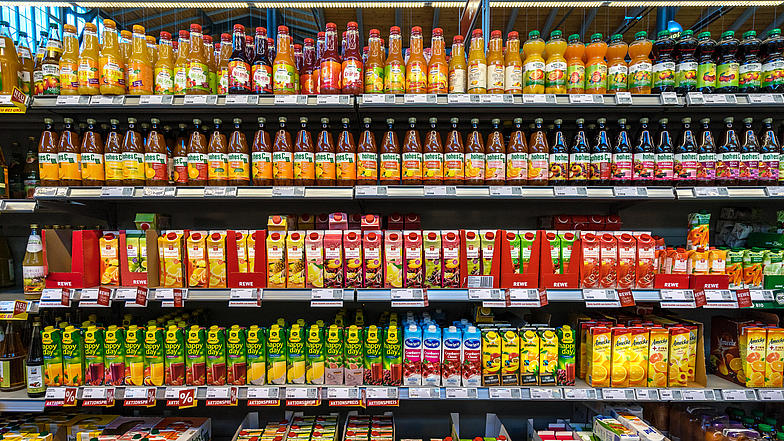
An opinion piece from EU-Observer by Suzy Sumner, Head of the Brussels Office. All rights reserved.
When the EU Commission released its so-called Breakfast Directive earlier this year, it seemed to pass under the radar, even though it includes a proposal which would give a free but misleading advertising slogan to food industry — "no added sugar."
In December 2022, the Food Information to Consumers (FIC) package had been pulled off the agenda by the European Commission at the very last minute.
From access-to-document requests, we can see that there was heavy lobbying and controversy around the proposal for an EU-wide, mandatory front-of-pack nutritional label.
But the FIC was more than that. The FIC would have finally regulated on the health or nutrition claims companies can make on their products: claims like "heart-healthy" "30 percent less fat" or "no added sugar". Legislation on these claims is now 15 years overdue.
In the EU's 'breakfast directive,' honey, jam and fruit-juice labels are being dealt with on their own, not part of a clear and overarching FIC package.
The commission proposes that the fruit-juice sector should be able to add the claim "no added sugar" to the front of its pack. A disturbing proposal as consumers will be misled into considering juices as a healthy option.
Simultaneously, the industry thus gets a 'nutrition claim', like an advertising slogan, on every packet to boost their sales.
Fruit juice is high in free sugars (from the fruit) which has the same health implications for consumers as added sugars. This may seem complicated but really, it is not.
Sugars can be seen as naturally present and intact when they are in a whole fruit, vegetable or in milk. The moment that we juice fruit, remove the fibre, the naturally present sugar has a different effect. It is now called a free sugar. Added sugar is what we know as sugar and what some put in their coffee at breakfast.
In the same European Food Safety Authority (EFSA) study, the conclusions are clear. Free and added sugars behave in the same way for our health. Juice or honey may contain vitamins or minerals, but they contain considerable amounts of free sugars and must be treated in the same way as added sugars, i.e. according to EFSA, consumed "as little as possible."
Orange juice vs Coca-Cola?
So, given these clear conclusions by EFSA, why is the Commission proposing that fruit juice can make the claim 'no added sugars' — when in fact a glass of juice contains about as much sugar as a glass of Coca-Cola? (In Belgium Minute Maid orange juice contains 11.6g sugar per 100g and regular Coca-Cola 10.6g/100ml).
I would argue it is an attempt to deliberately mislead consumers and to promote the fruit juice industry. The issues that foodwatch is battling against daily.
The European Parliament will vote on the legislation in the ENVI committee on Wednesday (29 November). The battle to get a compromise amendment to delete this claim on fruit juice is fierce between the MEPs who do not want misleading claims and those who want to reintroduce this claim which has been forbidden since 2016.
This is more absurd given the current context of a European health crisis on the rise.
Non-Communicable Diseases (NCDs) such as type 2 diabetes, cancer, and cardiovascular disease are responsible for 77 percent of the disease burden in the European region. They account for the largest part of countries' healthcare expenditures, costing EU economies €115bn annually.
The commission itself stated clearly in the inception impact assessment for the FIC that something is going wrong with nutrition and health claims in the EU: "there is evidence that more than one third of foods bearing claims continue, to date, to have a high FSS (fat, sugar, salt) content, which may be masked by the use of a nutrition or a health claim on the label"
Consumers need clear information on the food they are eating and help to make healthy choices. General Food Law forbids misleading consumers, yet it is a frequent practice.
A colour coded front-of-pack nutritional label, like the Nutri-Score, would go a long way to help. Nutri-Score is only a translation of the mandatory nutritional information on the back of the pack into a logo which is easier to read.
This change needs to be done as part of the Food Information to Consumers package, and any nutrition or health claims made on a package must be based on independent science.
It's not only about breakfast, it's about every time we eat and drink. It's not about one product, it's about all the many claims across the supermarket. It's time for the commission, our governments, and the MEPs to deliver on the whole Food Information to Consumers package.
